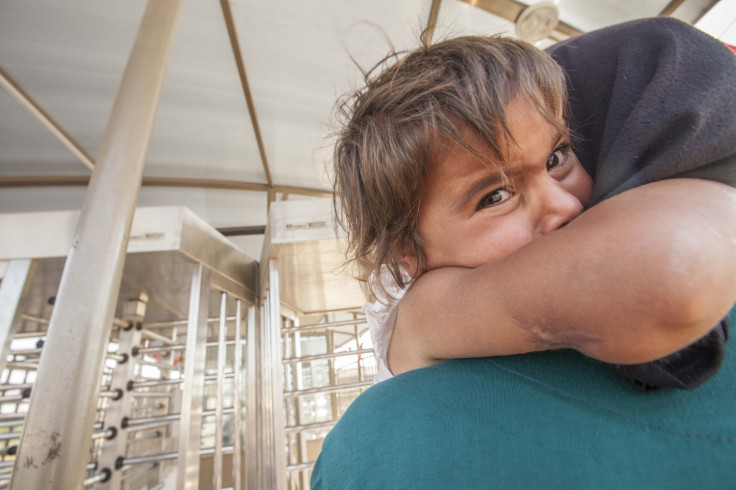Syrian Government Excluded Rebel-Held Region, Deir Al-Zour, From 2012 Polio Vaccination Campaign

According to a Reuters investigation, the Syrian rebel-held province of Deir al-Zour, which was the site of the polio outbreak this year, was excluded from the 2012 vaccination campaign that was carried out by the Syrian government. The government reportedly claimed that most of the inhabitants of Deir al-Zour had fled due to the war, though in reality hundreds of thousands of people were still living there.
The region of Deir al-Zour contains some 1.2 million people, with more than 600,000 under the age of 15 in 2012, according to the World Health Organization (WHO). However, it’s unclear why this particular region was excluded from the campaign, Reuters reports. The city of Deir al-Zour is government-held, while the surrounding countryside is largely taken over by rebels. The government has not commented as to why it was excluded from immunization.
It's not only Deir al-Zour, however, that poses a risk to unimmunized children. Chris Maher, the coordinator for the WHO’s regional polio response for Syria, said that the entire country of Syria has been poorly immunized due to the civil war. “There are unimmunized kids all over Syria,” he told Reuters. “I have no information that that particular area was higher risk than anywhere else given the general deterioration of immunization rates during the conflict.”
The WHO has identified up to 17 cases of polio this year in Syria, marking the first polio outbreak in the country since 1999. Civil war has ravaged Syria since 2011, after the government tried to silence protesters. In an attempt to curb the outbreak, the U.N. and the WHO have decided to roll out a massive vaccination campaign — the largest ever carried out in the Middle East, which will vaccinate over 22 million children in Syria and neighboring countries.
However, despite attempts to roll out the vaccination campaign this past month, health workers have experienced stalling due to the political conflict. “Inside Syria, the campaign aims to reach 2.2 million children, including those who live in contested areas and those who were missed in an earlier campaign,” a UNICEF press release stated. However, UNICEF noted that many children “remain inaccessible, particularly those trapped in sealed off areas or living in areas where the conflict is ongoing.”
Polio is an infectious disease that mostly affects children under the age of 5, and causes paralysis and even death if not treated properly. Most of the world has eradicated polio, except for Afghanistan, Nigeria, and Pakistan — and now Syria.
Public health officials worry that this new vaccination campaign is too little too late, as the past several years would have been the ideal time to ensure vaccination for all children in Syria. “There was a lack of proper campaign to vaccinate children across the country over the past two years,” Dr. Adam Coutts, a public health researcher based in Lebanon who has studied the humanitarian response in Syria, told Reuters. “With the breakdown of the health system, sanitation and nutrition, the exclusion of Deir al-Zour from the vaccination campaign provided the ideal conditions for an outbreak to occur.” According to Maher, polio vaccination coverage has significantly lowered during the conflict, from 90 percent immunization in 2010 to under 70 percent in 2012.



























